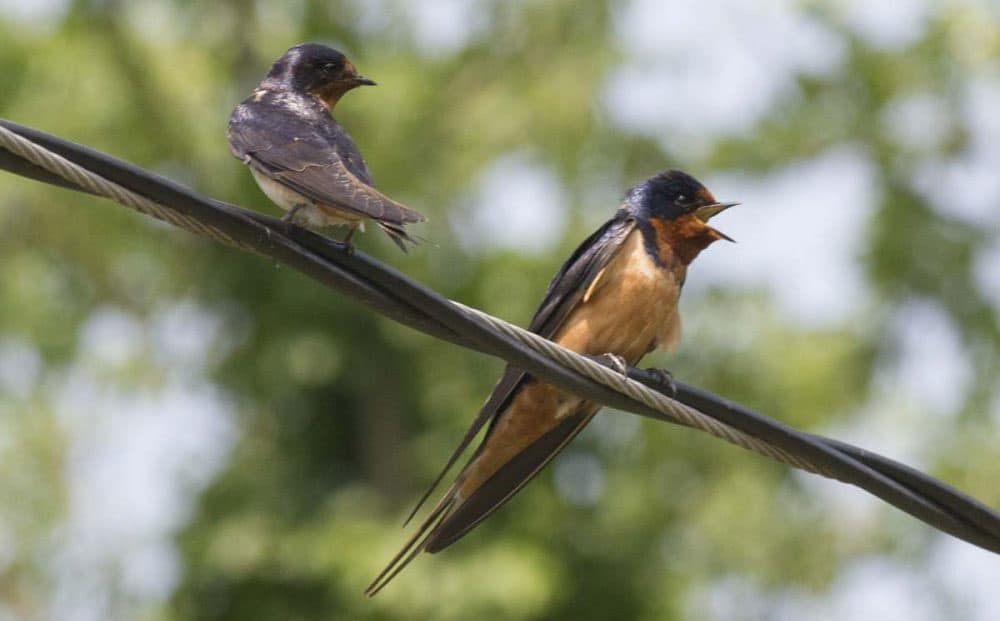Advertisement
commentary
Charlie Baker's Muzzling Of State Scientists Hurts Us All

It takes a lot of gnarly weather to send your average Massachusetts resident into a depressive slump. But week after week of raw, cold air and relentless rain has left many of us sodden, shivering and frustrated. You might also wonder how this unseasonably bleak weather is affecting our ecosystem — say, the rejuvenation of flora or the return of various bird species. You might venture over to The Boston Globe, looking for answers from scientists.
Unfortunately, you won’t find any. Gov. Charlie Baker doesn’t allow state scientists to talk with Globe reporters.
This information was revealed this week in an alarming story from the Globe’s environmental reporter, David Abel. How does this censorship play out? In order to speak with local media, state scientists must obtain permission from a designated state public relations official. As Abel detailed, nearly every interview request he's made -- as well as those of many of his colleagues -- has instead been answered with a list of bulleted talking points from the administration. Abel says of the time, those talking points haven’t addressed the questions he wanted to ask state scientists.
Muzzling scientists betrays the public trust, and is a naked attempt to manipulate the science narratives that shape our lives.
“I have had the same experience reporting stories about ... mercury pollution, nuclear power, carbon emissions, etc,” Abel wrote. He continued:
I ask questions and seek comment from our public officials, and the Baker administration routinely won’t allow them to speak to me ... They have made it clear that they won’t allow me, or many of my colleagues, to speak directly with the experts in government who can often best answer our questions — even when it’s a story about birds.
We could talk about the irony of science censorship happening in a state renowned for its scientific industries and educational programs. But the far more serious problem is that muzzling scientists betrays the public trust, and is a surreptitious attempt to manipulate the science narratives that shape our lives. It has echoes of the way that Donald Trump's White House regularly stonewalls the press. (Sarah Huckabee Sanders hasn't even held a press briefing for the last two months.) And it begs the question: Why doesn't Baker want scientists talking to constituents without the filter of a press official?
The best-case possibility is that the Baker administration wants to retain control over disseminating scientific intel to the public. This knee-jerk impulse for control has been repeated throughout history, especially when the controlled intel might cause panic, but that doesn’t make the practice acceptable — especially right now, when climate change poses a creeping danger to our communities and our ecosystem. If ever there were a time when the public could benefit from unfiltered dialogue between state scientists and the press, it’s today.
If ever there were a time when the public could benefit from unfiltered dialogue between state scientists and the press, it’s today.
Still, climate change hasn’t entered its terminal phase yet. For now, we’re not facing mass panic scenarios like city-submerging coastal floods or food shortages — the sort of scenarios that often compel elected officials to put gag orders on experts who know the full magnitude of the dangers we face. But if we don’t pick up the pace on decarbonizing our energy grid and economy, we're in trouble. And one of the first steps toward averting climate disaster is for states to assess how much damage they’re doing to the environment now, and what needs to change immediately.
So let’s look at how Baker’s Massachusetts stacks up when it comes to environmental policies. For the past three years, the state's environmental advocacy groups have given Baker a "C" for his work on environmental issues, saying, "we remain disappointed that the Commonwealth is lagging in many areas where we should be leading."
We’re still importing more than $20 billion worth of fossil fuels each year — mostly natural gas, which fuels more than two-thirds of electricity generation in our state. We’ve made modest progress curbing emissions and making plans to add windmill farms to the coast, but the latter has been overshadowed by the expansion of fossil fuel infrastructure, such as the dreaded compressor station that the energy giant Enbridge wants to build in Weymouth. Baker has pulled strings to help the corporation secure the necessary permits for this project, but Weymouth residents wary of the fire and air-pollutant hazards that compressors pose have had little luck getting the governor to listen.
We can loudly condemn Baker’s censorship of state scientists, and failing that, we can pray that one of those scientists decides to break protocol and speak with the press about the issues that affect our lives. We can also remind ourselves of what’s happened in recent history when scientists were marginalized by states with agendas to protect. I recommend watching HBO’s new “Chernobyl” miniseries, which gruesomely depicts how the worst nuclear disaster in human history was exacerbated by self-serving leaders who refused to admit that something had gone horrifically wrong, until two groups forced the truth into the light.
Which groups? Scientists and journalists.
